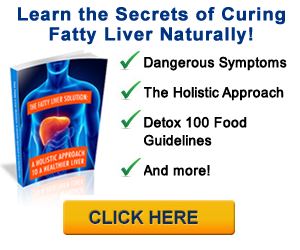The Role Of Antioxidants In Liver Protection.
Did you know that antioxidants play a crucial role in protecting your liver from damage? Your liver is responsible for detoxifying harmful substances in your body, and it is constantly exposed to oxidative stress. This is where antioxidants come in – they help neutralize free radicals and reduce oxidative stress, preventing liver damage. In this article, we will explore the importance of antioxidants in liver protection and how you can incorporate them into your diet for a healthier liver. So, let’s dive in and discover how antioxidants can safeguard your liver!
The Importance of Liver Health
The liver is a crucial organ in our body that plays a vital role in maintaining our overall health and wellbeing. It is responsible for various functions, including detoxification, metabolism, storage of nutrients, and production of important proteins. Understanding the importance of liver health is essential for maintaining a healthy and functioning body.
Understanding the liver’s role in the body
The liver performs a wide range of essential functions in our body. One of its primary functions is detoxification, where it filters out toxins, chemicals, and harmful substances from the bloodstream. The liver also metabolizes drugs and alcohol, ensuring that they are broken down and eliminated from the body.
Additionally, the liver plays a key role in the metabolism of carbohydrates, proteins, and fats. It helps regulate blood sugar levels, stores vitamins and minerals, and produces bile, a substance necessary for the digestion and absorption of fats.
The impact of liver damage on overall health
When the liver is damaged or not functioning properly, it can have a significant impact on our overall health. Liver damage can lead to various health issues, including digestive problems, hormonal imbalances, impaired metabolism, weakened immune system, and even life-threatening conditions such as liver cirrhosis or liver cancer.
Maintaining liver health is thus crucial to ensure the proper functioning of our body and prevent the development of serious health conditions.
Introduction to Antioxidants
What are antioxidants?
Antioxidants are compounds that help protect our cells from the damaging effects of free radicals, which are highly reactive molecules that can cause oxidative stress and damage to our cells. Free radicals are generated through various processes in the body, such as metabolism, exposure to environmental pollutants, and even stress.
Antioxidants work by neutralizing these harmful free radicals, preventing them from causing damage to our cells and tissues. They play a crucial role in maintaining the overall health of our body, including the health of our liver.
Sources of antioxidants
Antioxidants can be found in various foods and beverages. Some of the best sources of antioxidants include fruits, vegetables, nuts, seeds, and whole grains. Berries, such as blueberries and strawberries, are particularly rich in antioxidants. Other antioxidant-rich foods include spinach, kale, broccoli, tomatoes, and green tea.
It is important to include a variety of antioxidant-rich foods in your diet to ensure you are getting a wide range of these beneficial compounds.
Liver Protection Mechanisms
Liver’s natural defense system
The liver has its own natural defense system to protect itself from damage. It contains various enzymes and antioxidants that help neutralize harmful toxins and free radicals. These defense mechanisms are vital for maintaining the health and integrity of the liver.
The role of antioxidants in liver protection
Antioxidants play a crucial role in protecting the liver from damage. They help neutralize free radicals and reduce oxidative stress, preventing damage to the liver cells. By supporting the liver’s natural defense system, antioxidants help maintain the overall health and function of the liver.
Types of Antioxidants
Water-soluble antioxidants
Water-soluble antioxidants are compounds that dissolve in water and are easily absorbed by the body. Examples of water-soluble antioxidants include vitamin C, vitamin B, and various types of polyphenols. These antioxidants help protect the cells and tissues of the liver from oxidative damage.
Fat-soluble antioxidants
Fat-soluble antioxidants, as the name suggests, dissolve in fat and are stored in our body’s fatty tissues. Examples of fat-soluble antioxidants include vitamin E, vitamin A, and certain types of carotenoids. These antioxidants offer protection to the cell membranes of the liver and help prevent lipid peroxidation, a process that can lead to liver damage.
Antioxidants and Liver Diseases
Fatty liver disease
Fatty liver disease is a condition characterized by the accumulation of fat in the liver cells. It can be caused by various factors, including excessive alcohol consumption, obesity, and metabolic disorders. Antioxidants play a crucial role in preventing and managing fatty liver disease by reducing oxidative stress and protecting the liver from damage.
Hepatitis
Hepatitis is the inflammation of the liver, usually caused by viral infections. Antioxidants help reduce inflammation and oxidative stress in the liver, supporting its recovery and preventing further damage.
Liver cirrhosis
Liver cirrhosis is a progressive condition where healthy liver tissue is replaced by scar tissue, leading to impaired liver function. Antioxidants can help slow down the progression of liver cirrhosis by reducing oxidative stress and supporting the liver’s natural defense mechanisms.
Effects of Alcohol on Liver
Alcohol-induced liver damage
Excessive alcohol consumption can have severe negative effects on liver health. Alcohol is metabolized by the liver, and the breakdown products can cause inflammation, oxidative stress, and damage to liver cells. Prolonged alcohol abuse can lead to alcoholic hepatitis, fatty liver disease, and even liver cirrhosis.
Antioxidant defense against alcohol-related liver diseases
Antioxidants play a crucial role in defending against alcohol-related liver diseases. They help neutralize the harmful byproducts of alcohol metabolism, reducing oxidative stress and protecting the liver from damage. Consuming antioxidant-rich foods and beverages can help mitigate the harmful effects of excessive alcohol consumption on the liver.
Role of Antioxidants in Liver Detoxification
Detoxification process in the liver
The liver is responsible for the detoxification of various substances, including drugs, alcohol, and environmental toxins. This detoxification process involves the breakdown and elimination of these substances from the body. Antioxidants play an important role in supporting the liver’s detoxification process by neutralizing harmful byproducts and reducing oxidative stress.
Antioxidants supporting liver detoxification
Antioxidants support liver detoxification by neutralizing harmful substances and reducing the oxidative stress associated with the breakdown of these substances. They help protect the liver cells from damage and support their optimal functioning. Including antioxidant-rich foods and supplements in your diet can help enhance the liver’s detoxification capabilities.
Diet and Antioxidants for Liver Protection
Antioxidant-rich foods for liver health
Including antioxidant-rich foods in your diet is essential for liver protection. Fruits and vegetables, particularly berries, leafy greens, and cruciferous vegetables, are excellent sources of antioxidants. Nuts, seeds, whole grains, and green tea also provide a significant amount of antioxidants. By incorporating these foods into your meals and snacks, you can support your liver’s health and overall wellbeing.
The importance of a balanced diet
While antioxidants play a crucial role in liver protection, it is important to note that a balanced diet is essential for overall liver health. Consuming a variety of nutrient-dense foods, including lean proteins, healthy fats, whole grains, and plenty of fruits and vegetables, will provide your body with the necessary nutrients for optimal liver function.
Supplementation and Antioxidants
Role of antioxidant supplements
In addition to a balanced diet, antioxidant supplements can be beneficial for liver protection. These supplements provide concentrated doses of antioxidants, which can help boost your body’s defense against oxidative stress and support the function of your liver. However, it is important to consult with a healthcare professional before starting any supplementation.
Recommended antioxidant supplements for liver protection
Several antioxidant supplements have shown potential in supporting liver health. Milk thistle, N-acetylcysteine (NAC), and vitamin E are commonly recommended for liver protection. These supplements have antioxidant properties and can help reduce inflammation and oxidative stress in the liver.
Preventing Liver Damage
Lifestyle changes for liver health
Preventing liver damage requires making certain lifestyle changes. Limiting alcohol consumption, maintaining a healthy weight, and avoiding the use of illicit drugs or unnecessary medications can help protect your liver from damage. Incorporating regular exercise and managing stress levels also contribute to liver health.
Avoiding harmful substances
To protect your liver health, it is crucial to avoid exposure to harmful substances. Environmental toxins, such as pesticides and chemicals, can place a burden on your liver and increase the risk of liver damage. Taking necessary precautions, such as using protective gloves and masks when working with toxic substances, can help minimize the impact on your liver.
In conclusion, the liver plays a vital role in maintaining our overall health, and protecting it is essential for a healthy and functioning body. Antioxidants play a crucial role in liver protection by reducing oxidative stress, supporting detoxification, and preventing liver damage. By incorporating antioxidant-rich foods, making necessary lifestyle changes, and considering antioxidant supplementation under professional guidance, you can take proactive steps towards maintaining the health of this vital organ. Remember, a healthy liver is the key to a healthy life.


